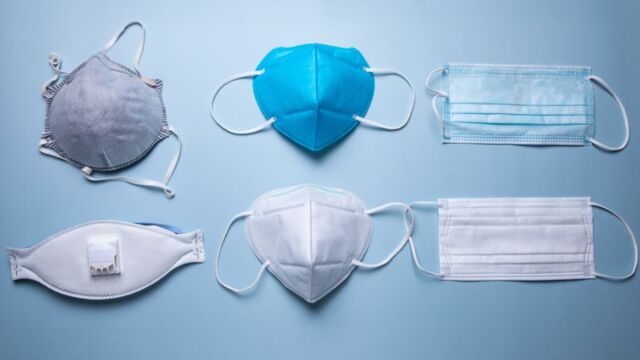Coronavirus restrictions in the UK are largely disposed of, includingface masks. But, just because you may be vaccinated doesn’t mean you’re safe from coronavirus, especially when it comes to the Delta variant.
Discover our latest podcast
So, even though it’s optional, it’s still a good idea to wear face masks in certain situations such as in crowded spaces, indoor public areas, and on public transport.
But how long should you wear your maks before changing them? Researchers from the University of Surrey’s Global Centre for Clean Air Research (GCARE) recently compared the optimum time usage and effectiveness of 11 different face masks, including three medical-grade, four respirators and four hand-made face coverings.
How often should we change our masks?
For the study, researchers developed a filter testing rig to measure the performance of 11 types of face masks. Results showed that masks could become clogged over time due to aerosol particles while breathing resistance also increases.
Researchers then used the crossover point between breathing resistance and the moment when particles start to penetrate the mask to identify the ideal usage duration for each type of protective face covering.
Results showed that respirator masks were 97% effective at preventing against particles and can be worn between 3.2 to 9.5 hours at maximum effectiveness.
On the other hand, medical face masks were only 81% effective and can be worn between 2.6 to 7.3 hours.
Unsurprisingly, hand-made face masks were much less effective at protecting against particles at just 47% but can be worn between four and 8.8 hours at maximum protection.
According to the NHS, there is no set time recommendation for how often you should change your mask; it all depends on what activities are involved. However, the website recommends that if your mask becomes damaged, wet, dirty or you accidentally touch the inside of it, then you should change your facial protection equipment (FPE) accordingly.
Professor Prashant Kumar, senior author of the paper and founding director of GCARE, explained: ‘It is important to reiterate that while vaccination is key to the fight against COVID-19, face coverings are also essential.’
Donning a face mask is not only about protecting yourself but all those around you. While any face mask is better than no face mask, our research aims to give the general public clear and accurate information so they can make informed decisions as we continue in our fight against COVID-19
Why should we wear masks?
While Brits are no longer legally required to wear FPE, some workplaces, shops, and businesses can enforce their own rules around coronavirus safety measures and may require people to wear protective equipment on the premises.
Evidence also suggests that coronavirus transmission occurs mainly in indoor, crowded spaces and face masks can mitigate this transmission by preventing the spread of coronavirus droplets through speaking, coughing and sneezing.
The primary purpose of a face mask is to protect others, but some evidence supports FPE protects the wearer as well. However, mask effectiveness doesn’t take away the importance of social distancing when appropriate, washing our hands regularly and getting vaccinated.
Cutting the spread of coronavirus is essential to protect those unvaccinated from severe illness, hospitalisation and even coronavirus related death. Additionally, the Delta variant - the dominant strain of COVID in the UK - is not only more transmissible but also can infect and spread through fully vaccinated people. This means that herd immunity may not be a possibility, and protective gear can help ensure extra protection.















